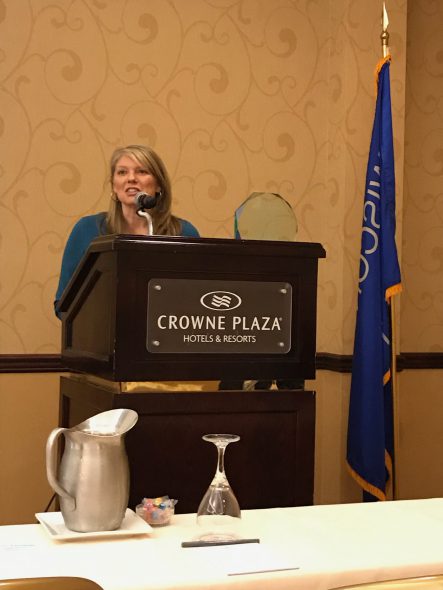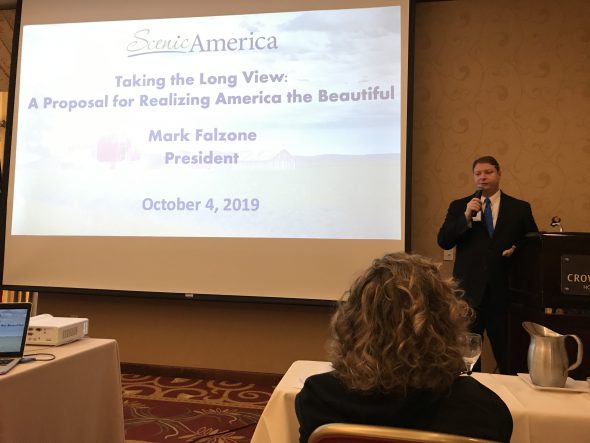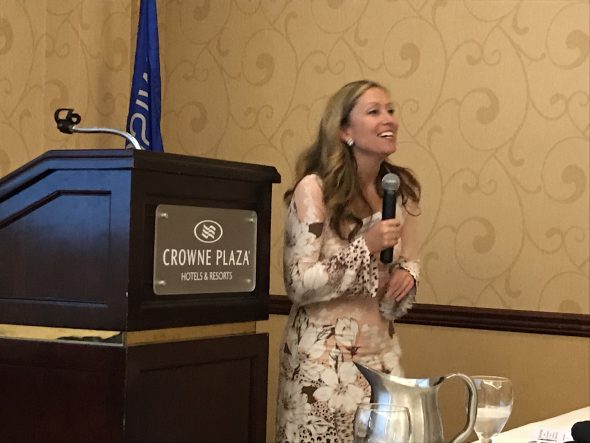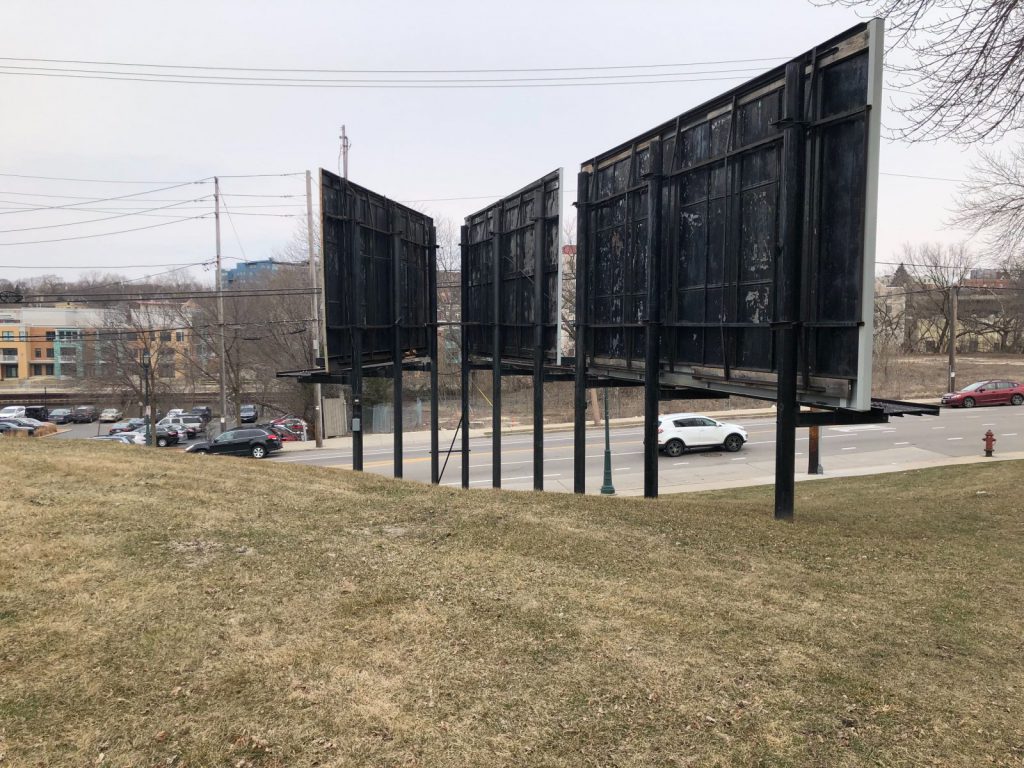State Needs to Restrict Billboards
They degrade Wisconsin scenery and are unnecessary in digital world.
New light was shed on the effects of billboards in our society at a conference of scenery-minded people at the Crowne Plaza Hotel in Wauwatosa on October 4th. At the day-long conference produced by Citizens for a Scenic Wisconsin, prominent community leaders spoke to an audience of about 50 attentive people on a range of topics relevant to protecting and enjoying the scenic assets of Wisconsin.

Deputy Secretary Anne Sayers, Department of Tourism, speaks about Wisconsin scenery. Photo courtesy of Charles Mitchell.
Department of Tourism Deputy Secretary Anne Sayers told of new efforts to promote the unique and varied charm of Wisconsin. State Treasurer Sarah Godlewski spoke of the careful stewardship of large tracts of forest by the Commissioners of Public Lands. UW Extension Professor Chuck Law talked about their program to preserve iconic old barns by re-use, with examples given by Steve Nagy, wedding-barn owner. Jim Zellmer, President of Amuz, pitched their new travel-planning apps as making billboards for directions to destinations unnecessary. Mark Falzone, President of Scenic America, provided a national perspective and he cited their efforts to control billboards along highways. Scenic Wisconsin President Gary Goyke also talked about billboard control and he told about the Billboard Reform Act (SB21) currently in the state legislature.
State Representative Amanda Stuck of Appleton, author of the Billboard Reform Act, said that there is a row of billboards so close together along Hwy. 41 that you can’t see the real Appleton behind them. And billboards are costly to remove when they are in the way of a highway widening project — billboard owners demand high prices which become part of the burden on taxpayers.

Scenic America President Mark Falzone advocates for highway beautification. Photo courtesy of Charlie Mitchell.
These speakers made it very clear how important the visual environment is – and it was also obvious that billboards are detrimental to it.
The Billboard Reform Act (AB 421) would prohibit new off-premises advertising signs known as billboards along state and federal highways. No existing billboards would come down, but it would stop new assaults on our scenery.
The Act would also strengthen regulation of existing billboards, in the spirit of the 1965 Federal Highway Beautification Act. And it would end the cutting of trees and vegetation solely for billboard visibility.
To understand the value of this bill, you need to consider recent developments and new realities of the age that we live in.
Technology has rendered roadside billboards practically irrelevant to the traveling public. Smart phones and dashboard GPS are in widespread use. These devices provide better and more complete information than any billboard could, including a comprehensive directory of nearby services and precise directions to get you there.

State Representative Amanda Stuck talks about her Billboard Reform Act. Photo courtesy of Charles Mitchell.
The idea that billboards are necessary to doing business was never entirely valid. Many cities in this state simply don’t allow billboards because they are a nuisance. Seven states in the U.S. now limit or prohibit the use of billboards. Of these, four states (including Maine and Vermont) ban billboards entirely and Michigan has a cap on the number of billboards. European countries such as England, France and Germany allow no billboards. And there is no evidence that people in states that have no billboards aren’t getting all the goods and services that they need.
Trees and vegetation provide numerous public and private benefits besides scenic beauty, such as noise reduction, light screening and erosion control. Plus they absorb carbon dioxide.
The Billboard Reform Act is an opportunity to reduce excessive advertising while stopping the degradation of Wisconsin scenery.
Charlie Mitchell is a life-long conservationist and preservationist. He is a member of the Wauwatosa Historic Preservation Commission, the board of directors of Citizens for a Scenic Wisconsin and of Partners in Forestry. He attended most of the meetings about the county grounds and spoke at many of them.
Legislation Link - Urban Milwaukee members see direct links to legislation mentioned in this article. Join today
Related Legislation: 2019 Assembly Bill 421
Op-Ed
-
Unlocking Milwaukee’s Potential Through Smart Zoning Reform
 Jul 5th, 2024 by Ariam Kesete
Jul 5th, 2024 by Ariam Kesete
-
We Energies’ Natural Gas Plans Are A Mistake
 Jun 28th, 2024 by John Imes
Jun 28th, 2024 by John Imes
-
Milwaukee Needs New Kind of School Board
 Jun 26th, 2024 by Jordan Morales
Jun 26th, 2024 by Jordan Morales























Amen!